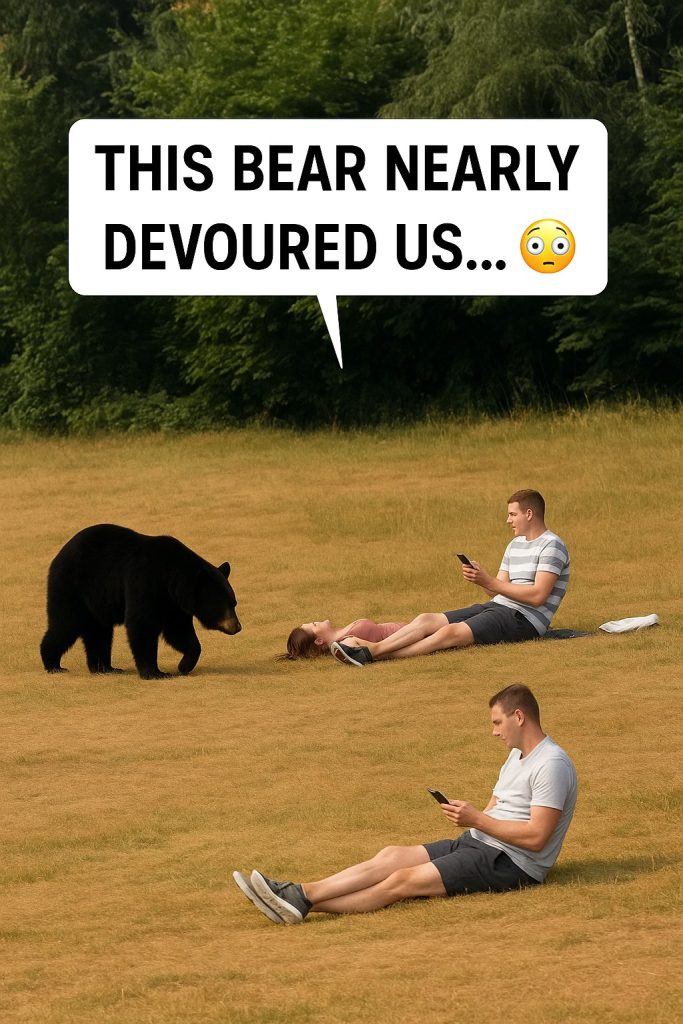What began as a peaceful camping trip quickly turned into a heart-pounding wildlife encounter when a bear unexpectedly approached a group of campers at close range, sparking a tense moment that serves as a stark reminder of the ever-present risks of wilderness adventures.
Earlier this month, amidst the spring awakening of nature, a family camping in the remote forested areas of the northern Rockies experienced a startling encounter when a large bear wandered within merely a few feet of their campsite. The group had been enjoying an afternoon picnic when the bear, seemingly attracted by the scent of food, emerged from nearby underbrush, much closer than anyone anticipated.
According to the campers’ recount, the bear paused near their tents, sniffed the air, and appeared more curious than aggressive. Yet, the gravity of the moment was palpable — the campers quickly recognized the need to remain calm and avoid sudden movements. They slowly retreated behind their vehicle and used a bear spray deterrent as a precaution, which ultimately prompted the bear to lose interest and amble back into the forest.
This close encounter is not unusual in 2024, as many wildlife agencies report increased sightings and interactions of bears coming near human habitats and campsites. Wildlife experts attribute this trend to a combination of factors including habitat encroachment, food scarcity in natural settings due to shifting seasonal patterns, and growing bear populations in certain regions.
Experts caution that while bears often do not intend to attack humans, any close approach can escalate rapidly, especially if the animal feels threatened or is protecting cubs. “Understanding bear behavior and taking preventive measures remains crucial for campers and outdoor enthusiasts,” a wildlife biologist explains.
Those measures include storing food securely, making noise to alert bears of human presence, carrying bear spray, and maintaining a safe distance if a bear is spotted. Officials also urge campers to avoid cooking near sleeping areas and to clean up all food remnants thoroughly to reduce attracting wildlife.
The campers involved in this incident were fortunate that the bear showed only curiosity without aggression, highlighting the importance of readiness and respect for nature’s untamed inhabitants. Their experience has prompted local authorities to boost awareness campaigns about bear safety this season to minimize more hazardous encounters.
As the outdoor recreation season progresses, experts remind everyone to remain vigilant while appreciating the beauty of the wilderness. Close encounters like this are powerful reminders of our shared space with wildlife — and the respect needed to ensure both human and animal safety.
For campers and hikers heading into bear country, preparedness and education are the best defenses. This incident serves as a striking example of how quickly an ordinary day in the forest can turn into a story of survival and coexistence with one of nature‘s most formidable creatures.


